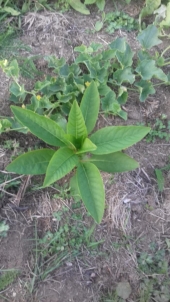There is much variation between fruits in regards to being able to propagate trees from seed and being either the same as the parent tree, or different yet acceptable vs unacceptable
1. All fruit trees grown from seed will need to pass trough a period of juvenility before transitioning into the mature fruiting stage.
2. Some fruits have a percentage of seeds that are clones of the parent tree, (some mangoes and many types of Citrus). These plants still need to pass through the juvenile phase before flowering and fruiting. The fruit will eventually be identical to the parent tree's fruit.
3. The juvenile period varies tremendously between different types of fruit. Peaches have a very short juvenile period, Some apples can be as long as 13 years before fruiting.
4. Many fruits have been selected for large size above the mean for the type of fruit. Seedlings often produce smaller fruit than their parents (closer to the mean size for the type of fruit).
5. If the desire is to select a new, superior cultivar, hundreds to thousands of seedlings may need to be trialed to find a superior selection. Unless the new selection offers a unique quality (ripening time, size, flavor, hardiness, or disease resistance, there is little point in introducing it.
6. Most fruit tree seedlings will eventually bear fruit, and it may be unique.






